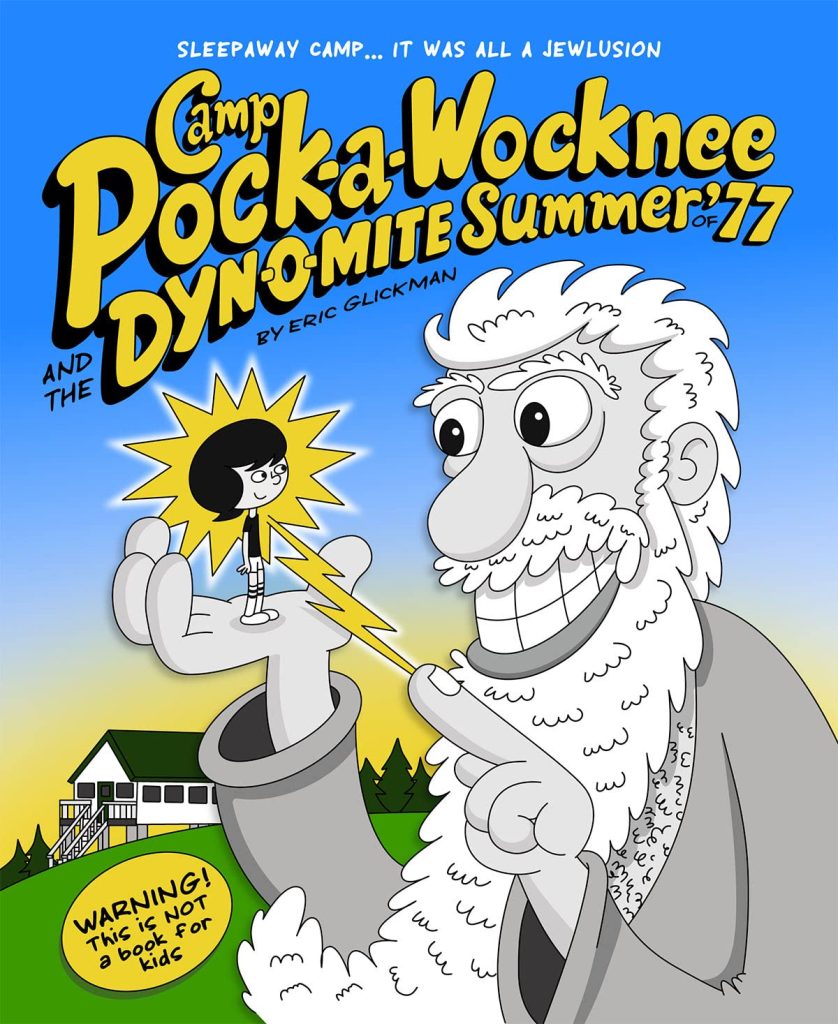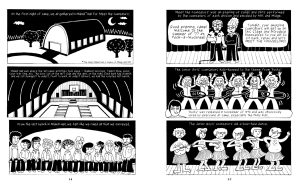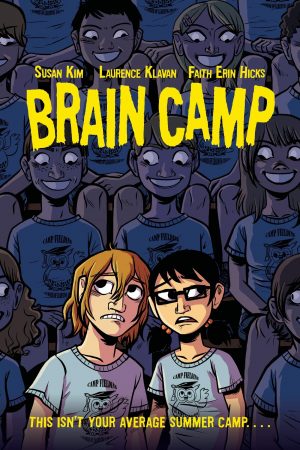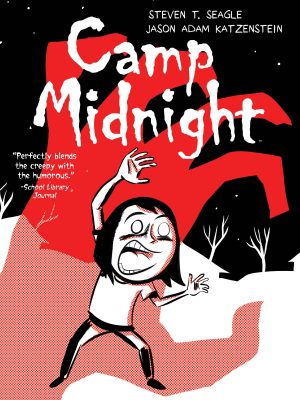Review by Ian Keogh
Eric Glickman’s summers were always spent at Camp Pock-a-Wocknee, and by 1977 he was sixteen and ranked a senior. That last year must have resonated as Camp Pock-a-Wocknee and the Dyn-O-Mite Summer of ‘77 is a memoir lasting almost three hundred pages beginning with Glickman’s arrival and ending as the camp disappears in the rear window of the departing coach.
Certain cultural phenomena burn brightly, but rapidly, which means Glickman spends a fair amount of time explaining the likes of the Coneheads or Jimmie Walker’s Good Times catchphrase of “dyn-o-mite”, while there are plenty of musical routines accompanying Afternoon Delight, Ariel or Play That Funky Music. Add phenomenal recall in bringing to life every moment of camp life, the active hormones of the sixteen year old, and a side dish of Jewish culture and that’s Glickman’s summer in 1977.
There are times when someone’s telling a story, and the feeling is that perhaps it’s their actual presence during what they’re recounting that elevates the experience, whereas just hearing about it fails to generate the same enthusiasm. Camp Pock-a-Wocknee is such an experience. It’s drawn with a certain amount of animated charm, and there are a few good anecdotes, one being the kid who brings a lot of clay model heads painted to look like Hitler for the shooting range, but Camp Pock-a-Wocknee never transcends its origins. It’s as if Glickman has rediscovered his 1977 diary, been overcome with nostalgic joy and set to work. He recalls the spooky camp stories, the disgusting habits, the futile hope of actual sex and the imaginative activities cooked up by the counsellors. A running gag about a mysterious man in a poncho has a well delivered, if predictable punchline, and everything transmits as a fun time if you were actually there.
As so many American kids still go to summer camp perhaps this will resonate far further than assumed, somehow tapping into an experience that if not quite universal, is certainly widespread. Others will be able to appreciate the good natured look at earlier times and the honesty about them, without forming any attachment.





